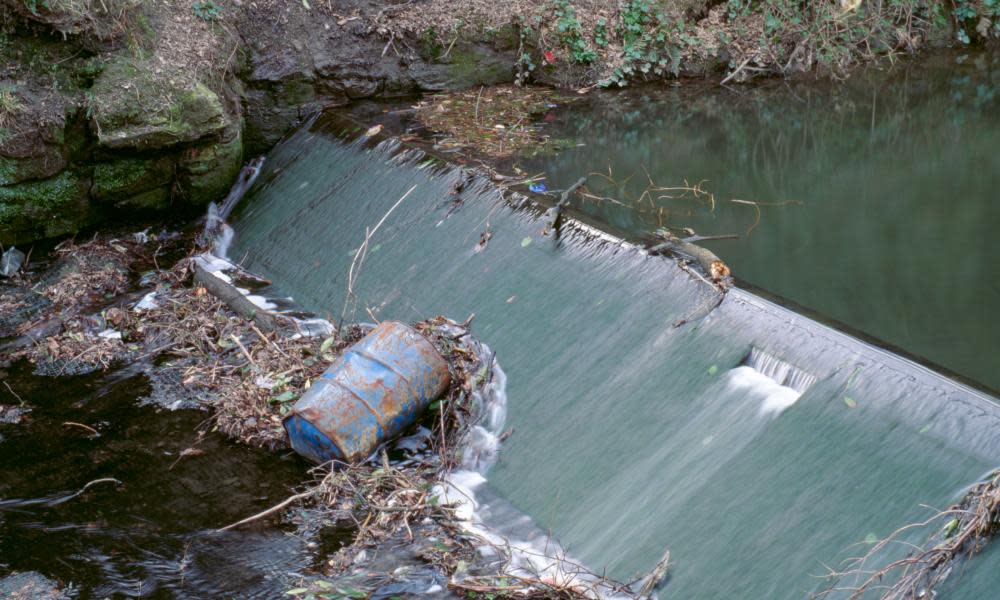Raw sewage breaches in UK rivers 10 times greater than watchdog estimates

The scale of water companies illegally discharging sewage is 10 times greater than the Environment Agency (EA) estimates, MPs have been told.
Peter Hammond, former professor of Computational Biology, University College London and now retired, said his work analysing sewage treatment works found in 2020 alone 160 breaches of permits granted by the watchdog to allow sewage discharges.
The EA has only prosecuted 174 cases of illegal discharges in the last 10 years, he said on Wednesday.
The MPs were also told that Mogden Sewage Treatment Works, one of the biggest in the UK, discharged the equivalent of 400 Olympic swimming pools worth of raw effluent into the River Thames over two days last Autumn.
The EA gives water companies permits to release untreated sewage into rivers via storm overflows after heavy rainfall to stop the sewage backing up into homes. But Hammond said his research shows the conditions attached to the permits are often breached, making the spills illegal.
One condition is that if sewage is released the treatment works must carry on treating sewage at a minimum rate. It was this latter condition that Hammond found was being breached at scale.
“My research has found that many of the treatment works do not continue to treat a minimum rate of sewage when they are spilling and many of these illegal spills are not identified by the EA,” Hammond told MPs on the environmental audit committee.
“My research found 160 breaches of permits in 2020. I believe they are in order of magnitude that I think is 10 times more … than the agency have identified.”
Despite the scale of raw sewage released into rivers, the EA does not test river water for faecal bacteria, something at which MPs expressed surprise.
For the first time this year, after a growing outcry over sewage discharges into rivers, the EA published full details of the scale of raw sewage discharged into rivers by water companies in 2020. The figures show water companies released raw sewage into rivers more than 400,000 times last year, amounting to more than 3m hours of discharges.
Countries are legally obliged to treat sewage before it is released into waterways, but discharges of untreated human waste are permitted only in exceptional circumstances, the European court of justice has ruled.
But MPs were told that the EA’s permits allowing water companies to discharge do not even specify that heavy rainfall is a condition, they merely state “after rainfall”.
The 2020 discharge figures showed the scale of sewage discharges in England into rivers and seas had increased from 292,864 incidents in 2019 to 403,171 in 2020 – a 37% rise.
Related: The River Lea is plagued by pollution – it is no place for a swim | Letters
This was partly because more monitoring of storm overflows by water companies has provided a much clearer picture of the scale of the pollution. In 2020, monitoring was placed on 12,092 storm overflows, compared with 8,276 in 2019, a 46% increase. The EA said average spill numbers remained similar to last year.
But Hammond said the event duration monitors (EDMs) installed by water companies provided only one measure. What was required, he said, was to monitor the volume of sewage being released during spills.
“If you get the details, sometimes the spills are lasting, days months and even six months,” he said. “Mogden sewage works in London is the only one that has a volume metre where they publish data to show how much is going into the River Thames.
“Five years ago, half a billion litres was released. That is steadily increasing. Last year it was 3.5bn litres. On two days in October last year they spilled 1bn litres plus. That is the equivalent of 400 olympic swimming pools of sewage each day, 16 olympic pools an hour for two days.
“So EDMs are a start but if we are going to know the effect we need to know how much is going in,” said Hammond.
Pete Lloyd, a retired water quality expert from the EA, told MPs the agency had never tested for faecal bacteria in rivers. “It is something to do with status quo, people don’t like changing and the EA senior management are probably afraid of admitting they have been doing things badly.”
Caroline Lucas, the Green party MP, said: “It is a shocking picture of an industry that seems frankly out of control.”

 Yahoo News
Yahoo News 
